Gender Equality and Social Inclusion
The Biodiversity Challenge Funds (BCFs) commit to being a Gender Equality & Social Inclusion (GESI) Sensitive programme.
In order to meet a GESI Sensitive standard, as defined by the BCFs, all successful projects must demonstrate they:
- Understand the GESI context in which the project is working within.
- Ensure inclusive and meaningful participation of all those engaging with the project.
- Will not contribute to or create any further inequalities i.e. “do no harm”.
Please see the BCFs GESI Ambition Statement for further information.
You may also find it useful to refer to the BCFs Gender Equality and Social Inclusion Webinar, March 2025.
Definitions
GESI is comprised of two key terms, the BCFs define these as follows:
- Gender Equality: is about addressing inequalities and transforming the distribution of opportunities, choices and resources available to girls, women and non-binary individuals so that they have equal power to shape their lives and participate in the process thereby increasing equality between people of all genders.
- Social Inclusion: refers to the process of improving the terms of individuals and groups to take part in society, and the process of improving the ability, opportunity and dignity of people disadvantaged and historically excluded from decision making and spheres of influence on the basis of their social identities (such as ethnicity, age, class, gender, and disability) to take part in society.
The BCFs understand Disability Inclusion and Indigenous People and Local Communities (IPLC) to be included within Social Inclusion.
Please see GESI Key Terminologies for further detail.
GESI Analysis:
Conducting a GESI Analysis is important in providing an insight and clearer understanding of the context a project is working within. These results can then be used to inform project design, ensuring inclusion and meaningful participation are embedded within the implementation of the project.
From April 2025 all applicants will be required to conduct a GESI Analysis as part of their application and all projects asked to consider the principles of a GESI Analysis within their reporting.
For further details and examples on how to conduct a GESI Analysis, please see the following resources:
The slides from this video can be accessed here.
How to meaningfully consider Social Inclusion:
To fully consider GESI within your project, you must consider both aspects of Gender Equality AND Social Inclusion.
As outlined above, the BCFs defines Social Inclusion to be inclusive of Disability Inclusion and Indigenous People and Local Communities.
The completion of a GESI Analysis will help you identify key barriers to participation and inform the actions required to address these inequalities. When conducting this analysis, projects and applicants should acknowledge the ways in which various social identities such as ethnicity, age, class, gender and disability interact to inform how an individual or group are affected or impacted by the various GESI Analysis principles.
Please see the following resources for further information:
Reporting on GESI:
All projects will be required to self-assess against the BCFs GESI scale within their Annual and Final Reports, providing evidence to support their assessment.
All projects are required to meet the minimum standard of GESI Sensitive, as outlined above, and encouraged to push beyond to deepen and improve their GESI contribution where they can.
The diagram below outlines the three aspect of the GESI scale and descriptions for each:

Please see the following resources for some top tips on how to approach data collection:
- Practical tips for GESI Responsive data collection
- Practical tips for asking GESI Responsive questions

 Back
Back Intro
Intro